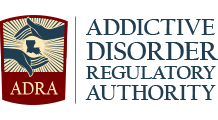Though self-harm is not a mental health disorder, this clinical term can bring many negative ramifications for those who struggle with it. Aside from the damage self-harm can inflict on a person, it can also be a symptom of other mental illnesses.
Self-harm involves different behaviors that lead to you intentionally harming your own body as the result of severe anger, emotional pain or other forms of distress. This often happens in the form of cutting yourself with a sharp object, according to the National Alliance on Mental Illness (NAMI), but self-harm takes place anytime a person deliberately hurts themselves.
Even the thought of hurting yourself is an indicator that you’re experiencing severe emotional distress. But treatment for self-harm is available, and the sooner you seek a professional self-harm treatment place such as Ascension Saint Thomas Behavioral Health Hospital, the sooner you’ll be able to reduce your risk for potentially devastating consequences.
Signs & Symptoms of Self-Harm
The signs and symptoms of self-harm can come in many different forms depending on multiple factors, including age, the specific form of self-harm you’ve engaged in and any potential history of an underlying mental health condition.
Many people often go to significant lengths to conceal their injuries. Even still, there are noticeable, if sometimes subtle, signs and symptoms of self-harm to look for. These include:
- Routine isolation
- Acting out unpredictably or impulsively
- Frequent agitation
- Keeping sharp objects or lighters nearby
- Impaired motor skills
- Difficulty staying focused
- Scars that may occur in visible patterns
- Broken bones with no explanation of their cause
- Wearing long sleeves or pants in warm weather
- Missing hair
All these signs and symptoms of self-harm must be taken seriously. Even if a person’s intentions are not to inflict permanent damage on themselves, that possibility will exist until they receive care from a qualified professional at a self-harm treatment place.
Ascension Saint Thomas Behavioral Health Hospital will provide a complimentary assessment to identify the symptoms you’re struggling with and determine if our self-harm treatment center is best suited to help you get on the road to recovery.
Self-Harm Statistics
Self-harm is most common during a person’s teenage and early adult years, according to NAMI, but it can happen at any point in life. People who have experienced neglect, abuse or trauma are most at risk.
The following are some additional self-harm statistics:
- A study from the University of British Columbia on nonsuicidal self-injury found that women are more likely to use cutting as their method of self-harm, while men are more inclined to use hitting or burning.
- That study also discovered that most people who practice self-harming behaviors don’t actually intend to end their own lives.
- The American Psychological Association (APA) reports that the lifetime self-harm rate for adults in the United States is around 5%, significantly lower than the adolescent rate of approximately 17%.
Potential Self-Harm Effects
Though we most commonly talk about the physical ramifications of self-harm, there can also be severe psychological consequences.
Even if a person doesn’t suffer a severe injury, self-harm can be a cycle that’s hard to escape. It’s common for a person who struggles with self-harm to feel shame or guilt, which can lead them back to the same behaviors.
Examples of the hazardous effects of self-harm include:
- Low self-esteem
- Shame and embarrassment
- Suicidal ideation
- Abuse of alcohol or other substances
- Social isolation
- Relationships damaged beyond repair
- Onset or worsening of additional mental health concerns
- Permanent scarring
- Financial ruin
- Chronic unemployment
You have the ability to manage these symptoms and regain control of your life. By seeking care at a professional self-harm treatment center, you can reduce the negative effects you’ve experienced and put a stop to any future damage.
Why Choose Our Self-Harm Treatment Center
For so many mental health concerns, one potential outcome is a severe sense of isolation. That’s particularly true with self-harm.
Making a concerted effort to hide physical and emotional signs of self-harm can leave you especially vulnerable and feeling like no one but you understands what you’re going through.
One of the biggest benefits of receiving professional care at a self-harm treatment place is the opportunity to feel that you are not alone on this journey. At Ascension Saint Thomas Behavioral Health Hospital, you’ll work with a team of experienced clinicians, but you’ll also get the chance to meet other patients who are struggling with similar concerns.
While others may be walking a similar path, each person’s struggles with self-harm are unique. Ascension Saint Thomas Behavioral Health Hospital considers individual strengths, needs and goals to help create a personalized inpatient treatment plan for each adult age 18 and older who is experiencing symptoms of self-harm.
You’ll have access to 24-hour nursing care in a relaxed, secure setting that allows you to focus on the one thing that matters most: your recovery. We’ll be with you throughout this process, providing you with the necessary tools and direction for better health in the days, weeks, months and years to come.
Therapies Used in Self-Harm Treatment
By completing a detailed assessment upon arrival at Ascension Saint Thomas Behavioral Health Hospital, you’ll allow our staff of esteemed clinicians to create a personalized self-harm treatment plan that will reflect your strengths and specifically target areas of greatest concern.
Once you begin programming at our self-harm treatment place, your plan may include:
- Group therapy
- Experiential therapy
- Medication management
- Family sessions
- Individual therapy
During your time at our self-harm treatment center, you’ll benefit from evidence-based modalities such as cognitive behavioral therapy (CBT), which is proven to help deliver the most optimal outcomes.
At the conclusion of your treatment, we’ll provide you with a detailed discharge plan that will give you the necessary resources to help you thrive. At Ascension Saint Thomas Behavioral Health Hospital, we want you to leave knowing that your best days are in front of you.
This content was written on behalf of and reviewed by the clinical staff at Ascension Saint Thomas Behavioral Health Hospital.






















